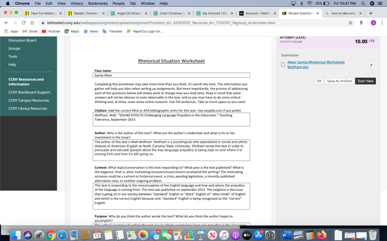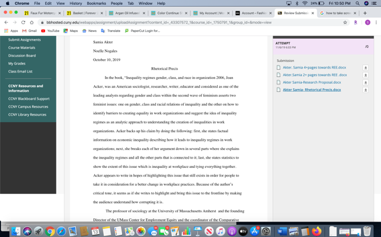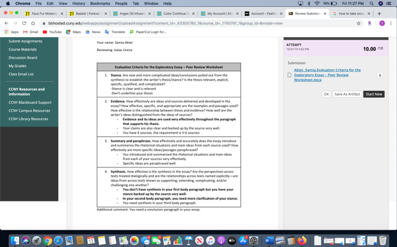
Abstract
This is a combination of all the phases we have learned so far in this course of language and literacy which includes 8 of the learning objectives.
Looking back in time
In this course of language and literacy I have gained knowledge on many things such as the ways language and literacy has affect in our lives, how we have access to literacy and what are the historical and political implications behind how literacy education is valued and traditionally approached and the difference between literacy and social differences; race and culture.
In phase 1, I was able to reflect on my reading, writing, and language experiences that shapes apart of who I am today. I had collected moments from a certain point of my life which was a major point that shaped how I used language and literacy. The purpose of my literacy language was to show how not having the freedom to read according to an individual’s interest can affect them later in life. Reading in our childhood is very important however, given the freedom to read based on our interest is even more important because we learn to enjoy how to read from our childhood. Not having passion for reading or writing not only separated me socially from getting along with some of my classmates but also made me feel left out from all the things they would enjoy and discuss with each other. The challenge of being able to read and write; learning something from it and most importantly enjoying it, became possible since I ruled what I wanted to read and write about where I didn’t have to follow any structure. I obviously didn’t become master at reading and writing but now I don’t hate reading nor writing because it became much easier than it used to be. Therefore, Phase 1 helped me evaluate on the challenging point that I encountered in my childhood with reading and writing and made me realize the importance of it. In this phase I have achieved one of the course objectives which is “recognize and practice key rhetorical terms and strategies when engaged in writing situations.” Through this phase I was introduced what rhetorical situation is and how it could be used in writing to get to know a source more. The way I was able to practice key rhetorical terms and strategies in writing was by the course readings. Some of the course readings of phase 1 are “How to Tame A Wild Tongue” by Gloria Anzaldua and “Mother’s Tongue” by Amy Tan. The rhetorical situation worksheets on these texts helped me practice many strategies as well such as developing skills on how to analyze these texts. In addition, the peer reviews in class helped me expand and develop my literacy experience further as well as the readings gave me ideas and helped me gather information about my language and literacy moments. Another course objective that I have achieved is “understand and use print and digital technologies to address a range of audiences.” For example, the spoken language and literacy narrative helped me achieve this objective as I was able to present a poem to the class which included some version of my written language and narrative essay. I was able to address my literacy experience to a range of audiences which were my classmates.


I’ve learned many things through phase 2 and gained more knowledge on general research. In this phase, I was able to achieve this course objective “Explore and analyze in their own and other’s writing a variety of genres and rhetorical situations.” The way I was able to explore and analyze different genres and rhetorical situations was through one of the course readings which was “Challenging Language Prejudice in the Classroom” by Walt Wolfram and the sources I have used to support my thesis. The concept of the rhetorical situations impacted most of my learning about the sources of my topic because the purpose, evidence, argument and the exigence helped me build my research and prove the inequality that truly does exist at workplaces. Also, the rhetorical precis assignment helped me learn about the variety of sources and extend my research in a greater way. In terms of the topic of my research which is inequality at workplace based on race, gender and accent I encountered the importance and the struggle that minority groups of people has to face getting into a job due to their skin color, gender and accent and to the extent these biased actions can affect them. I have discussed this issue because it is not given as much attention as it needs because people don’t usually speak up. In addition, “locating research sources (including academic journal articles, magazine and newspaper articles) in the library’s databases or archives an on the internet and evaluate them for credibility, accuracy, and bias.” I have analyzed 6 sources which included 1 shared course reading, 1 scholarly source, 1 peer reviewed article and 2 non scholarly sources, to back up my thesis which was race, gender and accent does play huge role in employer’s hiring practices and affects them to a large extent. Another course objective I have achieved through phase 2 is “Develop strategies for reading, drafting, revising, and editing.” While writing the research exploratory essay I have developed strategies for reading when I had sources that was very long, and I had decided to skim through the abstract and important parts of the articles. This helped me get together evidences for my thesis. The research exploratory essay also helped me develop strategies for drafting, revising, and editing was through the peer review and the conferences in class which helped me look into and fix all the mistakes I had. Lastly, while writing the research exploratory essay I was able to “practice systematic application of citation conventions” because one of the most important part of the essay required citation of the sources to give credits to the authors of the articles. Therefore, the meaningful insights I have gained through this phase was through writing this essay, I was able to develop my skills more on the rhetorical situations to show different perspective of the sources, learning how to use databases and finding specific sources based on my topic.




During phase 3, I have used skills of describing, summarizing, taking a stance and analyzing sources from previous phase 2 and developed it further to write a critical analysis essay based on the topic which is linguistic discrimination. In this essay I was able to analyze political cartoons to prove my stance which is standard English is not the only correct English, there are many dialects, languages and accents of English that are also correct. Through this phase, I was able to gain knowledge on how linguistic discrimination still exists but is not shown directly. Moreover, some of the most meaningful insights I have gained through this phase was through writing this essay, I was able to develop my skills more from the homework assignments reading and analyzing examples to gather our thoughts and come up with a topic. However, more importantly, peer reviews also helped me reevaluate my ideas and be specific with them as well. Also, in terms of the topic of linguistic discrimination, Lippi green’s text “Accent, Standard Language Ideology, and Discriminatory Pretext in the Courts” helped me prove my thesis. The way phase 3 assignments helped me achieve one of the course learning outcomes which is “recognize the role of language attitudes and standards in empowering, oppressing, and hierarchizing languages and their users” because analyzing examples helped me gain knowledge on language discrimination. In addition, I have used Lippi green’s text and two political cartoons to interpret and critically evaluate the intentions and meaning of them then backing it up with my thesis which is standard English is not the only correct English because other languages, dialects and accents are also correct.

Hence, in this course language and literacy, I have achieved most of the course learning objectives though the phases. However, the objective that I didn’t achieve in this course is “Develop and engage in the collaborative and social aspects of writing processes.” The structure of these phases helped me learn each of the objectives better. The homework assignments, peer reviews, feedbacks, class discussions made it easier to achieve most of the course learning objectives.

